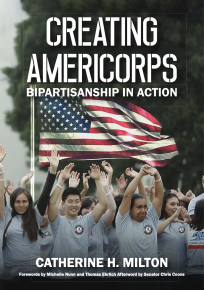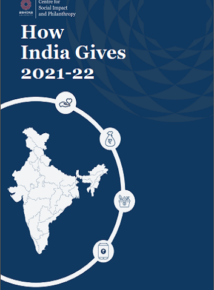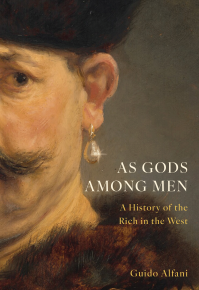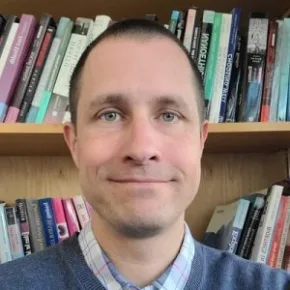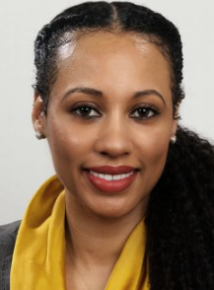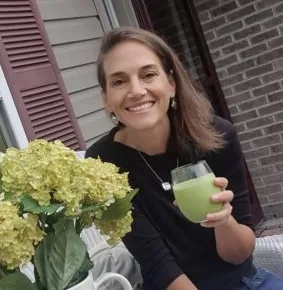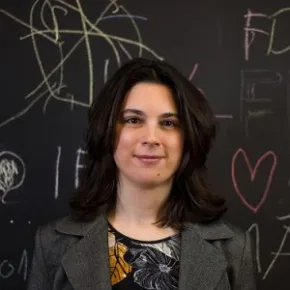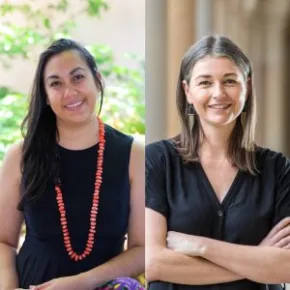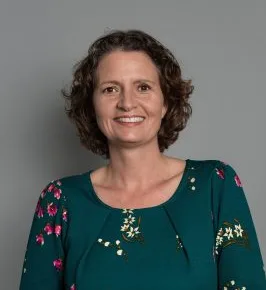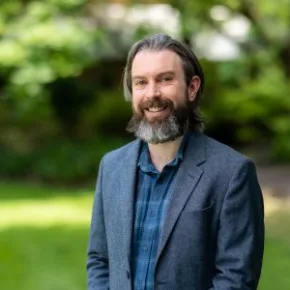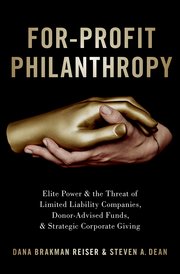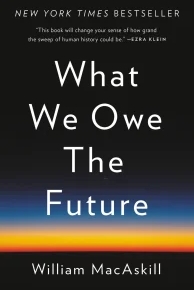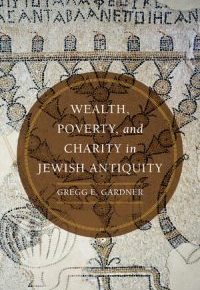Editors’ Note: Catherine Milton, the first executive director of the Commission on National and Community Service (which laid the foundation for AmeriCorps), recounts the creation of the agency, the subject of her new book, Creating AmeriCorps: Bipartisanship in Action (2023). In 1991, I was sitting in my office at Stanford University, when I received a … Continue reading
Author Archives: HistPhil
What Can We Learn from Women Philanthropists as Precedents for Alumni Education Donors and their Push for Power Today
Editors’ Notes: Looking for historical precedents to today’s “aggressive” alumni donors, John Thelin and Richard Trollinger wrote recently on HistPhil that “the aggressive alumnus as major donor and activist is a product of our own times.” Challenging this thesis, Joan Marie Johnson reminds us that “prominent white women philanthropists” in late nineteenth- and twentieth-century United … Continue reading
Historicizing Ackman: Searching for Precedents of the Higher Education “Donor Revolt”
Editors’ Note: John Thelin and Richard Trollinger, two scholars of philanthropy and higher education, put the recent higher education “donor revolt” in historical perspective. Recent campus conflicts at elite American universities, The New York Times declared in a recent article, signal a “new politics of power” in which “wealthy donors expect money to buy a … Continue reading
Using Oral History in Public Health Philanthropy: The Health and Human Rights Oral History Project
Editors’ Note: Jonathan E. Cohen introduces the Health and Human Rights Oral History Project, a new collection of oral histories documenting thirty years of investment in the field of global public health by George Soros’s Open Society Foundations, housed at the University of Southern California Digital Library. Oral history offers a powerful and underutilized tool … Continue reading
How India Gives: A First-of-its-Kind Longitudinal Study on Household Giving in India
Editors’ Notes: Shaivya Verma and Divya Chopra outline the findings from two reports on household giving patterns in India, from the Centre for Social Impact and Philanthropy at Ashoka University. This post continues HistPhil‘s forum on the Inclusive Study of Global Philanthropy. January was marked by Makar Sankranti celebrations in India, a harvest festival celebrated … Continue reading
Magnificence: from Lorenzo de’ Medici to J.P. Morgan – and beyond?
Editors’ Note: Guido Alfani explores the concept of the ideal of “magnificence” and situates it in relation to “munificence” and “philanthropy,” based on a discussion in his new book, As Gods Among Men: A History of the Rich in the West (Princeton University Press, 2023). Why was Lorenzo de’ Medici (1449-1492) called “the Magnificent”? Because … Continue reading
Giving as Doing and Being: A Ugandan Perspective
Editors’ Note: Dennis Kilama continues HistPhil‘s forum on the Inclusive Study of Global Philanthropy, with a perspective from Uganda. This post is adapted from a post first published by the Lilly Family School of Philanthropy at Indiana University. After 15 years of active involvement in the nonprofit sector in Uganda, I joined the Ph.D. program at the IU … Continue reading
The Uneven Landscape of Civic Opportunity in the United States: What We Discovered While Mapping the Modern Agora
Editors’ Note: Jae Yeon Kim introduces the research he has conducted, along with other colleagues at the SNF Agora Institute at Johns Hopkins University, on the uneven associational landscape of civic opportunity in the United States. I was born and raised in South Korea and came to the United States about a decade ago to … Continue reading
The Complications of Crowdfunding: The Power of Unseen Intermediaries
Editors’ Note: Jeremy Snyder discusses the role of crowdfunding platforms as charitable intermediaries, based on his new book, Appealing to the Crowd: The Ethical, Political, and Practical Dimensions of Donation-Based Crowdfunding (Oxford University Press, 2023). After natural disasters, high profile tragedies, and other major news events, it is now commonplace to see a proliferation of … Continue reading
Global Experiential Philanthropy: A Pedagogical Approach for Developing the Next Generation of Philanthropists Around the World
Editors’ Note: Lindsey McDougle continues HistPhil’s forum on the Inclusive Study of Global Philanthropy, with a post on an experiential philanthropy class in Tanzania. How do young people develop philanthropic identities—identities that empower them to make a meaningful contribution to their own communities? This is a question that I’ve often thought about; and it is … Continue reading
Understanding Philanthropy in China: Challenges and Opportunities
Editors’ Note: Yongzheng Yang continues HistPhil‘s Inclusive Study of Global Philanthropy forum, with a focus on the study of philanthropy in China. Although philanthropy is generally defined as voluntary action for the public good, the inherent meaning and understanding of such a concept varies by country or culture. In this post I will share several … Continue reading
Where is the love? Philanthropy research in Vietnam and the USA
Editors’ Note: Dana Doan continues HistPhil‘s forum on the Inclusive Study of Global Philanthropy, with a perspective from Vietnam and the United States. When people find out that I study philanthropy, I feel compelled to have a conversation about the term to prevent them from jumping to the conclusion that I research elite individuals donating … Continue reading
An inclusive study of global philanthropy: Perspectives from Serbia
Editors’ Note: Bojana Radovanović continues HistPhil‘s forum on the Inclusive Study of Global Philanthropy. In academic discourse, philanthropy is most often identified with donating money and volunteering time to charitable organizations. However, I believe, such an understanding does not exhaust the concept of philanthropy and the variety of forms in which it appears. All over … Continue reading
Studying generosity “down under”: Taking the colonial context seriously
Editors’ Note: Cassandra Chapman and Sana Nakata continue HistPhil‘s forum on the Inclusive Study of Global Philanthropy. All dimensions of life in Australia and New Zealand have been shaped by the experience of British colonisation. “Down under” is a colloquial term born from colonial politics of geography. The British “motherland” has been the key reference … Continue reading
An inclusive study of global philanthropy: how can we overcome definitional, cultural and geographical boundaries?
Editors’ Note: Pamala Wiepking opens HistPhil‘s forum on promoting an inclusive study of global philanthropy. In the coming weeks, scholars from around the world will reflect on the study of voluntary giving in their countries of focus and on how those studies can be informed by, and inform, Western definitions and norms, without being tethered … Continue reading
How did GoFundMe become “the Giving Layer of the Internet”?
Editors’ Note: Matt Wade recounts the growth of GoFundMe as the world’s largest giving platform, as analyzed in his recent article in the Journal of Philanthropy and Marketing. Despite their enormous success in introducing millions of people to the extraordinary potential of peer-to-peer fundraising, GoFundMe has lately been having a difficult time. There is accumulating … Continue reading
Civil society by the numbers? Nonprofits, accountability, and the creative politics of quantitative discipline
Editors’ Note: Aaron Horvath introduces the argument behind his recent article in American Journal of Sociology, “Organizational Supererogation and the Transformation of Nonprofit Accountability.” In the late 1990s and early 2000s, the nonprofit sector experienced a crisis of accountability. News of fraud, overpaid executives, and other misdeeds fueled popular anxieties over whether nonprofits were misusing … Continue reading
The Rise of Philanthropy LLCs and the Erosion of the Bargain of 1969
Editors’ Note: Dana Brakman Reiser and Steven Dean discuss the significance of the rise of philanthropy limited liability companies, and place it within historical context, based on material from their new book, For-Profit Philanthropy: Elite Power and the Threat of Limited Liability Companies, Donor-Advised Funds, and Strategic Corporate Giving (Oxford 2023). The history of U.S. … Continue reading
Antislavery in What We Owe the Future: The Contingency of Moral Change
Editors’ Note: Matthew Wyman-McCarthy examines the role of British abolitionism as a case study and model for the longtermism movement in William MacAskill’s What We Owe the Future (Basic Books, 2022). Throughout the eighteenth century, most Britons who bothered to reflect on the transatlantic slave trade at all would have considered it an unalterable fact … Continue reading
The Development of Charity in Early Jewish Thought
Editors’ Note: Gregg Gardner introduces his new book, Wealth, Poverty, and Charity in Jewish Antiquity (University of California Press, 2022), The ancient rabbis of the first centuries tell a story about a king, named “Munbaz.” Munbaz is loosely based on a historical figure – Monobazus II, the scion of a royal dynasty from Mesopotamia that … Continue reading
